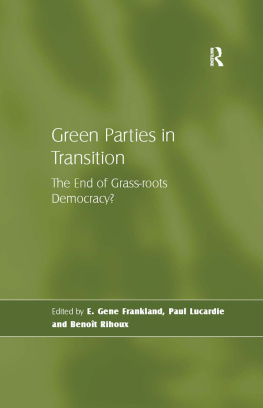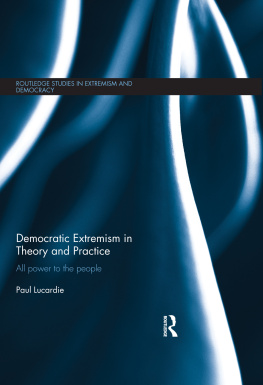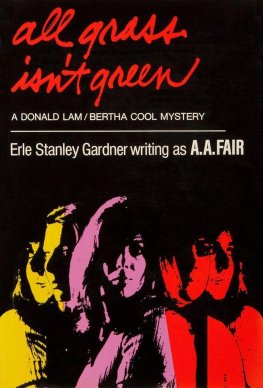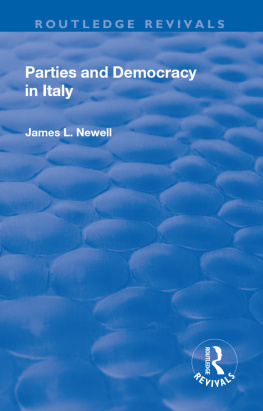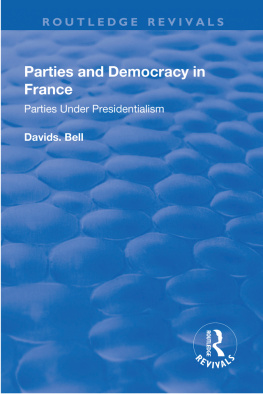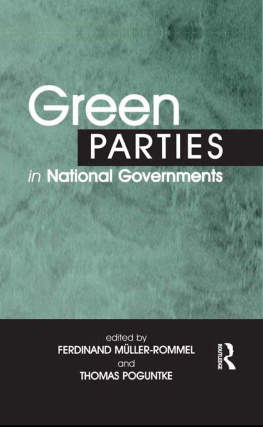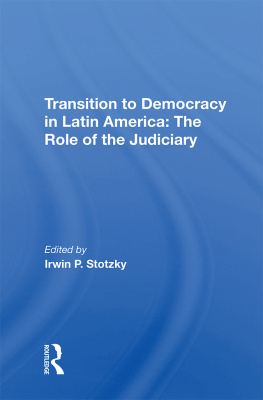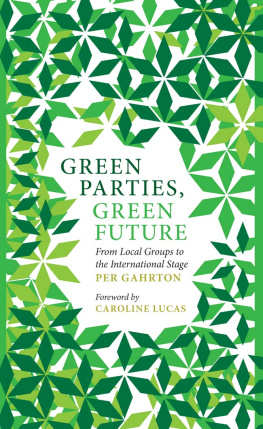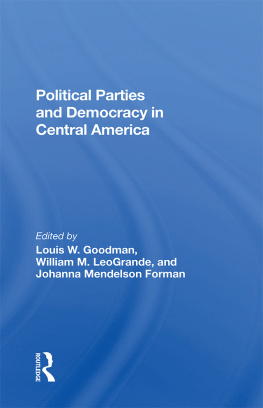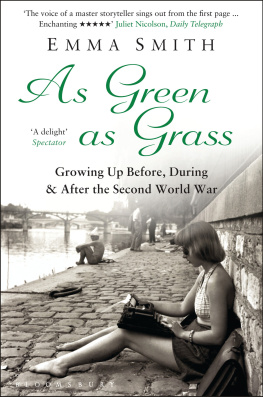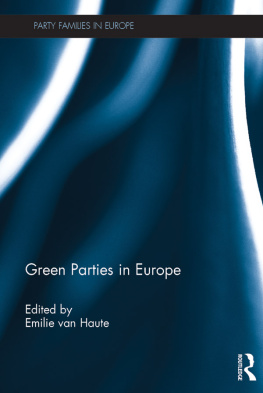GREEN PARTIES IN TRANSITION
Green Parties in Transition
The End of Grass-roots Democracy?
Edited by
E. GENE FRANKLAND
Ball State University, USA
PAUL LUCARDIE
Rijksuniversiteit Groningen, The Netherlands
BENOT RIHOUX
Universit catholique de Louvain, Belgium
First published 2008 by Ashgate Publishing
Published 2016 by Routledge
2 Park Square, Milton Park, Abingdon, Oxon OX14 4RN
711 Third Avenue, New York, NY 10017, USA
Routledge is an imprint of the Taylor & Francis Group, an informa business
Copyright E. Gene Frankland, Paul Lucardie and Benot Rihoux 2008
E. Gene Frankland, Paul Lucardie and Benot Rihoux have asserted their right under the Copyright, Designs and Patents Act, 1988, to be identified as the editors of this work.
All rights reserved. No part of this book may be reprinted or reproduced or utilised in any form or by any electronic, mechanical, or other means, now known or hereafter invented, including photocopying and recording, or in any information storage or retrieval system, without permission in writing from the publishers.
Notice:
Product or corporate names may be trademarks or registered trademarks, and are used only for identification and explanation without intent to infringe.
British Library Cataloguing in Publication Data
Green parties in transition : the end of grass-roots democracy?
1. Green movement
I. Frankland, E. Gene II. Lucardie, Paul, 1946- III. Rihoux, Benot, 1965-
324.2'187
Library of Congress Cataloging-in-Publication Data
Green parties in transition : the end of grass-roots democracy? / edited by E. Gene Frankland, Paul Lucardie, and Benot Rihoux.
p. cm.
Includes index.
ISBN 978-0-7546-7429-0 (hardback) 1. Green movement--Cross-cultural studies. 2. Political parties--Cross-cultural studies. I. Frankland, E. Gene. II. Lucardie, Paul, 1946- III. Rihoux, Benot, 1965-
JA75.8.G7358 2008
324.2'187--dc22
2008030032
ISBN 13: 978-0-7546-7429-0 (hbk)
Contents
Benot Rihoux, Paul Lucardie and E. Gene Frankland
Paul Lucardie and Benot Rihoux
E. Gene Frankland
Bruno Villalba
Jukka Paastela
Jo Buelens and Pascal Delwit
George Taylor and Brendan Flynn
Andreas Ladner and Michael Brndle
Volkmar Lauber
Jon Burchell
Paul Lucardie and Gerrit Voerman
Christine Dann
Wolfgang Rdig
Jacqueline Sharp and Anita Krajnc
John C. Berg
Benot Rihoux and E. Gene Frankland
John C. Berg is Professor and Chairman of the Government Department at Suffolk University (Boston USA) as well as Associate Fellow of the Rothermere American Institute at the University of Oxford (UK).
Michael Brndle works for the Federal Department of Foreign Affairs in Switzerland.
Jo Buelens is researcher at the Vrije Universiteit Brussel (Free University Brussels) in Belgium.
Jon Burchell is Lecturer in Strategic Management at the University of Sheffield (England).
Christine Dann completed a PhD thesis on the global origins of green politics (with specific reference to Australia and New Zealand) and has been a national office-holder in the New Zealand Greens and a researcher for the Green caucus.
Pascal Delwit is Professor of Political Science and Director of the Centre dtude de la vie politique at the Universit libre de Bruxelles in Belgium.
Brendan Flynn is Lecturer at the School of Political Science and Sociology at the National University of Ireland at Galway (Ireland).
E. Gene Frankland is Professor of Political Science and Director of the European Studies Program at Ball State University, Muncie, Indiana, USA.
Anita Krajnc is a Toronto media democracy activist and writer. She is currently working on a book on protest art and independent media.
Andreas Ladner is Professor of Swiss Public Administration and Institutional Policies at the Institut de Hautes tudes en Administration Publique at Lausanne (Switzerland).
Volkmar Lauber is Professor of Political Science at the University of Salzburg in Austria.
Paul Lucardie is Researcher at the Documentation Centre of Dutch Political Parties at the University of Groningen in the Netherlands.
Jukka Paastela is Professor of Political Science at the University of Tampere in Finland.
Benot Rihoux is Professor of Political Science at the Universit catholique de Louvain in Belgium.
Wolfgang Rdig is Reader at the Department of Government of the University of Strathclyde in Glasgow (Scotland).
Jacqueline Sharp is a holistic nutritionist and climate change economist based in Toronto. She has held a number of roles within the Green Party of Ontario and was co-founder of one of the citys largest riding associations.
George Taylor is Lecturer in the School of Political Science and Sociology and Director of the Centre for Public Policy at the National University of Ireland at Galway (Ireland).
Bruno Villalba is Lecturer in Politics at the University of Lille II in France.
Gerrit Voerman is Director of the Documentation Centre of Dutch Political Parties at the University of Groningen in The Netherlands.
Benot Rihoux, Paul Lucardie and E. Gene Frankland
The first recognizably green national parties emerged in New Zealand (1972) and the United Kingdom (1973), though these parties did not take the name of Green Party until later. The international surge in the formation of explicitly Green parties occurred in the early and mid 1980s. The early Greens were noteworthy not only because of their transformative programmes but also because of their advocacy of grass-roots democracy within their own organizations and beyond. Although they remained small compared to the established parties, most had within their first decade won parliamentary seats. In the mid 1990s, the first participation in national government by Green parties took place in Finland and Italy; while elsewhere in a number of countries the Greens in opposition were becoming politically relevant. These newcomers were changing the structure of party competition, but also being changed by it. Against this backdrop in January 1997, Paul Lucardie and Benot Rihoux submitted a proposal to the European Consortium for Political Research (ECPR) to organize a workshop entitled Challenges to Established Party Organization? Theory and Practice of Green and Alternative Left Party Organization.
The goal was to survey the organizational evolution of Green parties in Western Europe as many of these new parties were approaching their twentieth birthday, having survived a tumultuous adolescence. The endeavor drew inspiration not only from real world developments, but also from recent contributions to comparative party literature, most notably: Angelo Panebiancos conceptual landmark Political Parties: Organization and Power (1988), Richard Katz and Peter Mairs two empirical volumes on party organizations (Party Organizations: A Data Handbook [1992] and How Parties Organize [1994]), Ruud Kooles work on modern cadre parties in the first half of the 1990s, and Robert Harmel and Kenneth Jandas outstanding article in the


